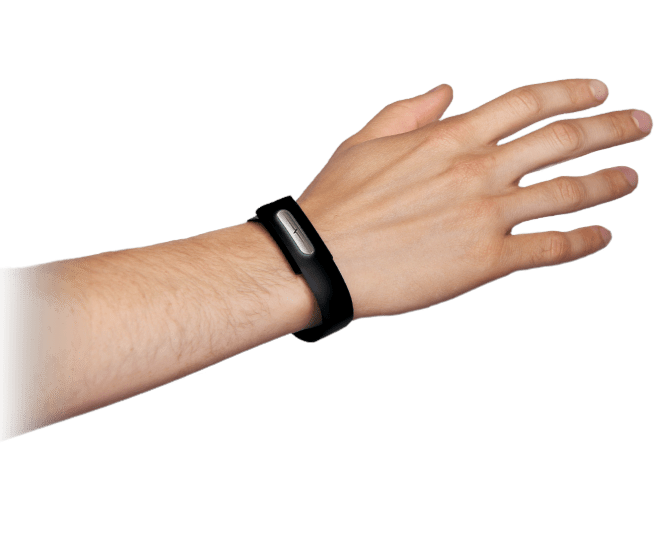Mastercard and identity wearables company Bionym say they will test the use of wearable devices to authenticate and execute “contactless” mobile payments in a multi-bank pilot program in Canada starting this year.
In the pilot, the card-issuing banks will put the near field communication (NFC) chip normally baked into contactless credit cards into Bionym’s Nymi wristband. The Nymi band uses the wearer’s unique heartbeat to verify that he or she is the real card holder.
Existing Royal Bank of Canada (RBC) Mastercard users will begin testing the wrist-based purchases before the end of the year, with other banks announcing participation later, the companies say.
The companies believe wearable authentication might create faster, easier financial experiences, with less risk.
“We’re continuing to work to provide customers increased choice how they pay,” said RBC’s mobile payments head Jeremy Bornstein in a statement. “Once their wristband is activated, they can leave their phone at home while they go for a run or run an errand and conveniently and securely buy a coffee or groceries with a tap of the wrist.”
The trial, if successful, could prove Bionym to be a viable alternative to first-generation authentication technologies like the TouchID fingerprint reader used in the Apple Pay system.
The company’s Nymi bracelet authenticates the wearer by his electrocardiogram (ECG) — the cadence of heartbeats unique to every person — when it’s first placed on the wrist. Another set of sensors then continuously detect that the authenticated person is still wearing the bracelet. If the bracelet is removed, the ECG is re-read once the device placed around the wrist again.
Bionym’s real interest in the trial is not to sell its own bracelets so much as it is to demonstrate that its core authentication technology has a strong application in the mobile payments arena.
“We are a platform play,” the company’s founder and CEO Karl Martin told VentureBeat. Bionym’s authentication technology could be baked into wearable devices that consumers buy to perform a range of functions, with mobile payments being just one. In other words, a smartwatch.
For instance, a smartwatch with an NFC chip and Bionym’s authentication system on board could perform mobile payments without the need for a smartphone.
So far only one major wearable device comes with an NFC chip inside — the Apple Watch. Yes, Bionym has indeed talked to Apple about using its ECG-based authentication technology in the Watch, Martin says, but nothing actionable came out of the discussion.
Martin and his team have spent more time talking to Android device makers. Far more Android devices exist in the wild than iOS ones, and an increasing number of them have the NFC chips needed for mobile payments. So it’s more likely that Bionym’s authentication technology will show up in a wearable running the Android Wear OS.
Bionym closed a $14 million funding round in September led by Ignition Partners and Relay Ventures, with participation by Export Development Canada (EDC), Mastercard, and Salesforce Ventures.
VentureBeat's mission is to be a digital town square for technical decision-makers to gain knowledge about transformative enterprise technology and transact. Learn More

